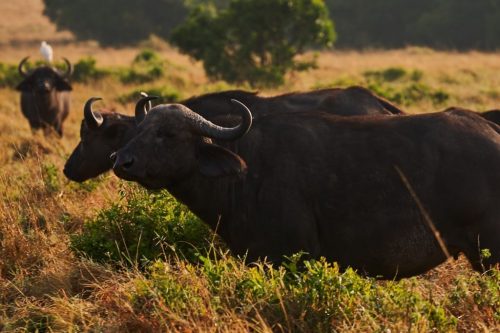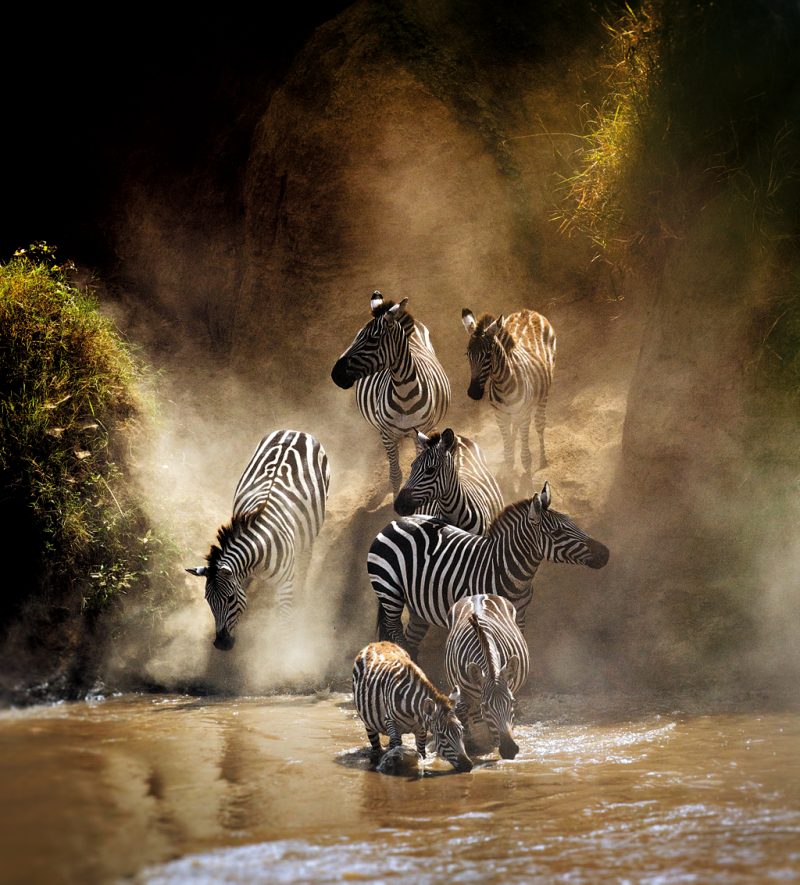INSPIRATION
A Vet's Life


Asuka Takita, a Japanese vet in the Maasai Mara, talks to Tamara Britten about her passion for a job where one day is never the same as the next.
How did a Japanese lady end up in the Mara?
I studied zoology in the USA, where I grew up. When I came to Kenya at the age of 21, I worked for a year and a half at Mpata Safari Camp in the Mara. It was then that I fell in love with Kenya, and knew I had to come back – but I wanted to do something other than tourism. I returned in 2001 and discovered there’s such a thing as a wildlife vet, under the jurisdiction of the Kenya Wildlife Service. So, I studied at Nairobi University for five years.
What was your first job here?
I started a vaccination programme for local dogs in the Mara. And my assistant still does that work, vaccinating about 8,000 dogs a year against rabies and canine distemper. These diseases are a major issue where the community lives close to the reserve. In 1996, around 1,000 lions were killed in the Serengeti because of canine distemper, which crossed from the local dog population to lions.
How did you move into anti-poaching?
Living in the Mara, you see what a major threat poaching is to our wildlife. Many think bush meat poaching is just subsistence poaching but it’s not. There’s a massive commercial bush meat industry. It costs more than beef. The poachers are highly equipped with knives, spears, poison arrows and snares made from specialised, heavy-duty wire. These snares are indiscriminate – they can catch lions and elephants, as well as anything else. It’s a slow death, and the animals often die of septicaemia.
What do you do to combat that?
To combat the bush meat trade, we do anti-poaching patrols and snare retrieval. We also do night ambushes. If rangers see a sign, maybe bush meat put out to dry, they set up an ambush. And we use tracking dogs.
Tell me about the dogs.
The project started in 2008. We’ve caught about 150 poachers using dogs since the start of this project. On top of this, the dogs do ‘arrest assist’, where they show us the way the poacher went using behavioral techniques.
How did the project start?
Before this, I knew nothing about tracking. I thought sniffer dogs were the same as tracking dogs. Now I know that sniffer dogs find items, while tracking dogs track people. When my boss asked me to start a tracker dog programme, I went on the internet and started sending emails to people who had done tracking – and no one replied. Then one lady got back to me: Linda Porter. Linda, with her husband John Lutenburg, has been in canine work in the USA for the last 40 years. She later said of receiving my email, “I get lots of emails that are completely crazy, but yours was the craziest. I said to my husband, ‘John, do you want to catch poachers in Africa? and he said, ‘Sure.’”
And how did it progress from there?
We sent Linda money to purchase the puppies, without ever having met her, and she trained the dogs for free for six months. Then she came to Kenya with two dogs and we finally met. She warned me that tracking is complicated.
But you went ahead with the project. How did it go?
We had several setbacks. The dogs trained in the USA were really good in their home environment, but completely freaked out when they smelt elephant, lion and leopard. We learned that we had to breed and train our own dogs in the Mara. The rangers were afraid we wouldn’t need them any more when the dogs started working – they thought the dogs would steal their jobs. So at first, none of them would call the dogs. But we explained that dogs are like guns – they need people to handle them. Now the rangers understand, and they’re happy to work with the dogs.
So how do the dogs find the poachers?
Watching dogs is fascinating. You can visualise what they’re smelling by how they’re moving. They’re tracking human scent, but also ground disturbance, where the grass has been crushed and rocks turned over – these make specific smells, all of which disappear at a different rate depending on sun exposure. When time has passed, dogs lose the scent on the plains with short grass faster than they lose it in the long grass; then they start casting: moving from side to side. When the track is wiggly, they’ll track on the opposite side of it from the wind. After several hours, when the scent has grown faint, they’ll start moving further and further from the track, wiggling around, searching to find the scent again. My job is to have the dogs stick closer and more accurately to the actual track through daily training.
It sounds like you love your job.
If you work in the bush, it’s work, work, work – I never even know what day or time it is. When I come back to Nairobi for a rest, I miss the Mara and want to go back. In the Mara, you never know what’s going to happen next. I don’t even know what I’m doing next week – and I love that.
TAGS
Our Top Experiences
SEEN SOMETHING YOU LIKE?
Enquire now and our team will create a custom itinerary tailored to your preferences.

CONTACT
enquiries@nomad.africa
Tel: +254 708 238 738
Purple Nomad Ltd
PO Box 69671 - 00400
Mwanzi Avenue, Nairobi, Kenya



